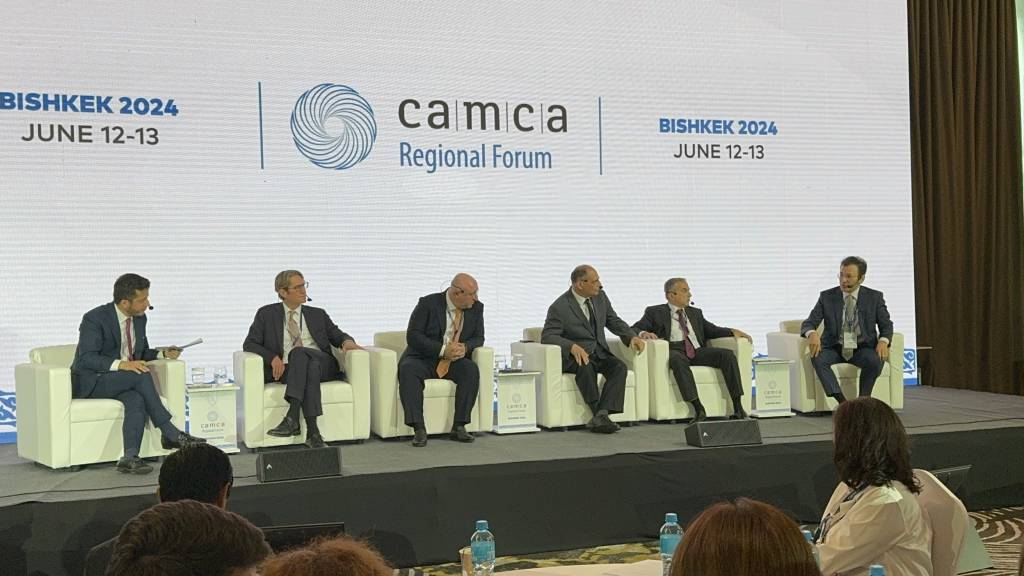WNAM MONITORING: Bishkek hosted the 10th annual CAMCA (Central Asia – Mongolia – Caucasus – Afghanistan) Regional Forum on “CAMCA’s Way Forward: Advancing Through Innovation and Strengthened Intraregional Ties”.
The event was organized by CAMCA, the Central Asia-Caucasus Institute, the Rumsfeld Foundation, and the Cabinet of Ministers of the Kyrgyz Republic.
This event is one of the first and only platforms that brings together representatives of 10 countries: Kyrgyzstan, Kazakhstan, Uzbekistan, Tajikistan, Turkmenistan, Afghanistan, Mongolia, Azerbaijan, Armenia, and Georgia.
The forum’s central discussion issues were intraregional trade, transport and transit, regional business and investment, economic development, entrepreneurship and innovation, human capital, and education.
The forum featured over 70 high-level speakers from different countries in the region and beyond. It was attended by over 250 experts and specialists from 22 countries.
Director of the International Institute for Central Asia J. Vakhabov, speaking at the first session devoted to the geopolitical and geoeconomic prospects of the region, explained in detail to the forum participants the essence of the reforms being carried out in Uzbekistan and the initiatives of the Head of state put forward within the framework of the Consultative meetings of the heads of state of Central Asia and aimed, first of all, at further development of trade and investment cooperation between the countries of the region.
Thanks to this, the last 6-7 years have become a historical period of economic development in Central Asia, characterized by stable and sustainable growth, which is confirmed by key macroeconomic indicators (the region’s GDP grew by 70%, exceeding $450 billion).
At the same time, as the IICA Director noted, despite the positive dynamics, the lack of transport connectivity in the region’s countries acts as a decisive restraining factor in developing economies. According to the World Bank, transporting goods to foreign markets can reach 50% of the final price of goods.
Experts emphasized the importance of assistance in developing transport infrastructure in Central Asia for further expansion of trade, improvement of transport links, and promotion of projects that will contribute to regional integration.


